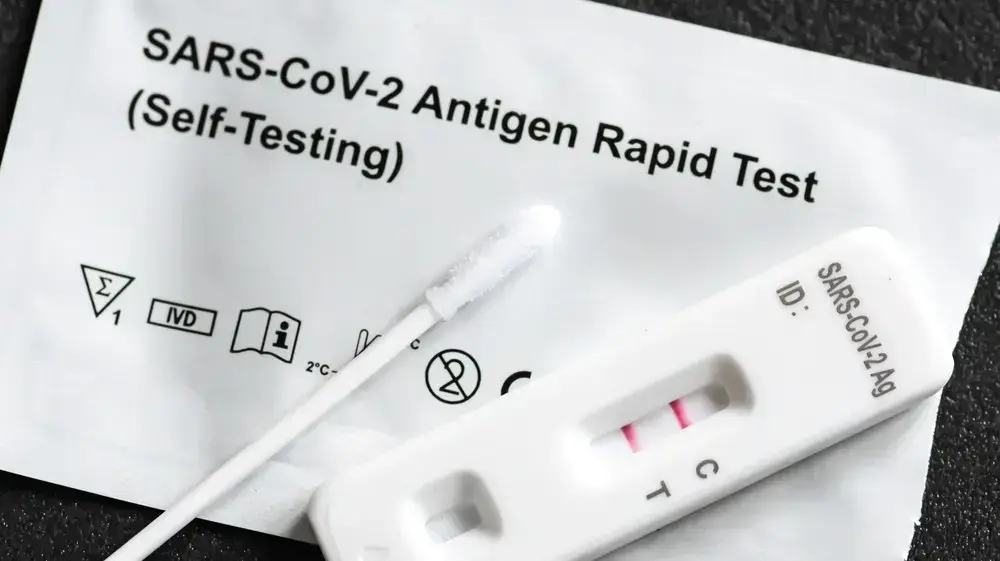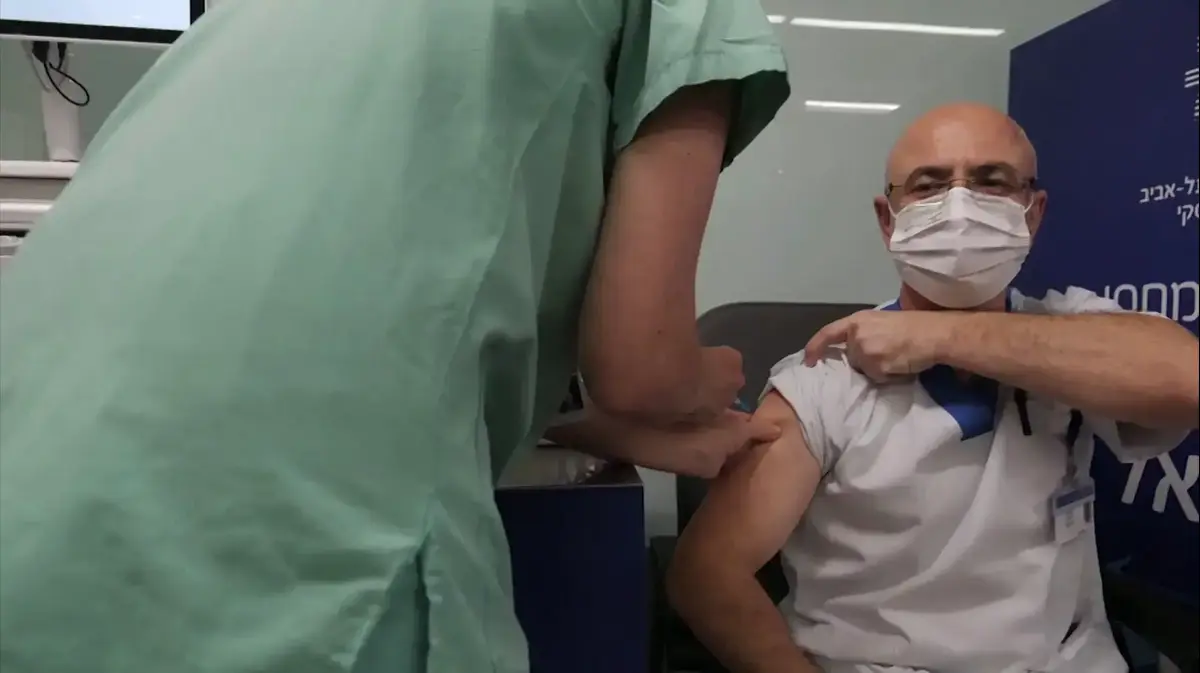The German Chancellor, Olaf Scholz, during the press conference after the meeting with the regional leaders, this Friday in Berlin.JOHN MACDOUGALL (AFP)
Germany, one of the countries with the strictest rules to stay inside bars and restaurants, has decided to toughen them even more to face the wave of omicron infections that it foresees in the coming days. The government wants to speed up the pace of booster vaccination and restrict contacts as much as possible, but without closing catering establishments, as Austria had to do in November. The solution, agreed this Friday in a meeting with regional leaders, is to apply the so-called 2G + rule in the hospitality industry. Only those vaccinated (or recovered) who have the third dose or who present a negative test done the same day will be able to access the premises.
For several weeks, the unvaccinated have been banned from consuming in bars and restaurants and accessing non-essential commerce. The stores check the covid passport at the entrance and usually also ask for an identity document to corroborate that it corresponds to the person who presents it. The exceptions are food establishments, pharmacies and bookstores. The new rule aims to slow down the pace of booster vaccinations. Currently 41.6% of the population already has the third dose, a high rate, higher than 32% in Spain. The booster dose is given in many walk-in locations and is open to all ages. Berlin, for example, has even been vaccinating in shopping malls those who turn five months from the second dose.
On the other hand, the percentage of vaccinated with two doses remains low when compared with the rest of the countries of Western Europe: it is 71.6% and has hardly increased in the last two months.
In Spain it exceeds 80%.
There are more than 11.5 million German adults who continue to resist immunization.
In recent weeks the protests of deniers and skeptics have increased and there have been altercations in some concentrations with the presence of extreme right-wing groups.
In December the Police arrested a group of people who planned to attack the Prime Minister of Saxony, the conservative Michael Kretschmer, whom they blamed for the restrictions against the coronavirus imposed in this
land
with the worst vaccination rate and the highest number of infections .
Quarantine and isolation reduction
The meeting with the regional presidents has also resulted in the decision to shorten the quarantine period for close contacts, which until now is 14 days. It will be reduced to 10 and people who have contact with a positive but are vaccinated with the booster regimen (with a third dose) will be exempt from doing it. In the case of health workers or residential centers, who are seeing their workforce depleted by infections, the isolation if they are infected will be 7 days if there is a negative PCR and if the patient has been without symptoms for at least 48 hours. Experts fear that the rise in the number of infections caused by omicron, the most contagious variant of the coronavirus, could lead to staff shortages in critical areas such as hospital, police and fire services.
Chancellor Olaf Scholz warned that a high number of infections from the new variant are expected in the coming days. "That is why we must prepare for this situation, and that is what we are doing," he said at the press conference after the meeting. Scholz acknowledged that the situation in Germany is for the moment less worrying than in other countries - "it is better than we feared" - but in view of the explosion of omicron cases registered in the rest of Europe, "larger figures are to be expected." than the ones we see today ”. The Robert Koch Institute has registered 56,335 positives and 264 deaths from the virus this Friday. The seven-day incidence is 303.4 cases per 100,000 inhabitants, and it has been on the rise for a few days after falling after the peak in November and December. In Spain, the incidence at 14 days exceeds 2,500.
"Ómicron will keep Germany busy for a long time," said the chancellor, who once again encouraged the Germans to be immunized to avoid serious cases and protect the health system from collapse.
Those who are not yet vaccinated should go "running" instead of "walking," he said.
Scholz also reiterated his willingness to approve the mandatory vaccine as soon as possible, although he acknowledged that the new law is now "in the hands of the Bundestag."
The first parliamentary debate to be held has been postponed until the end of January, complicating the entry into force in February, as Scholz initially put it.
The Chancellor assured that the Government is united on this issue and that it trusts that the deputies will make the correct decision when the vaccine is finally voted on.











/cloudfront-eu-central-1.images.arcpublishing.com/prisa/S7ERVSCT4FUVX6R7TUVBDNTH5Y.jpg)



